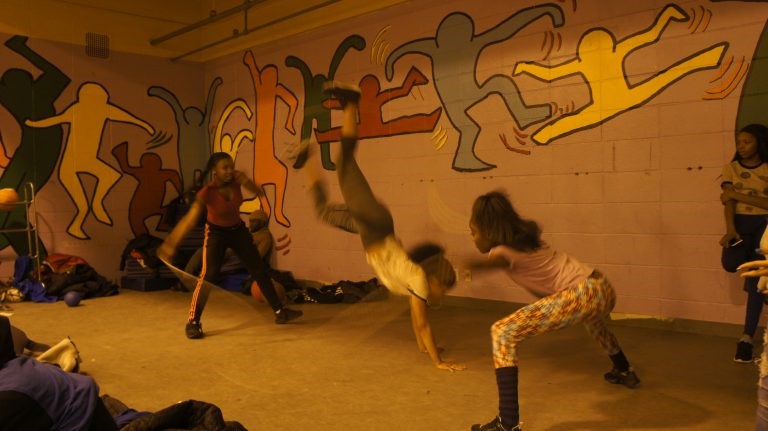
With the exception of dance, recreational activities for girls are non-existent in Brownsville, one of New York's poorest neighborhoods. That's where double dutch comes in; a schoolyard jump rope game turned Olympic sport practiced by the Jazzy Jumpers, a group run out of the Seth Low Community Center on the first floor of a NYCHA housing project.
For a small team of assorted ages and funded entirely out-of-pocket by willing parents, Jazzy Jumpers holds a lustrous track record of placing in the top-three at national and regional championships. Last week, the girls were busy perfecting their speed jumps, turns and tricks for the USA Jump Rope regional tournament in New Hampshire on Saturday, and are slated to perform in the nationals this June.
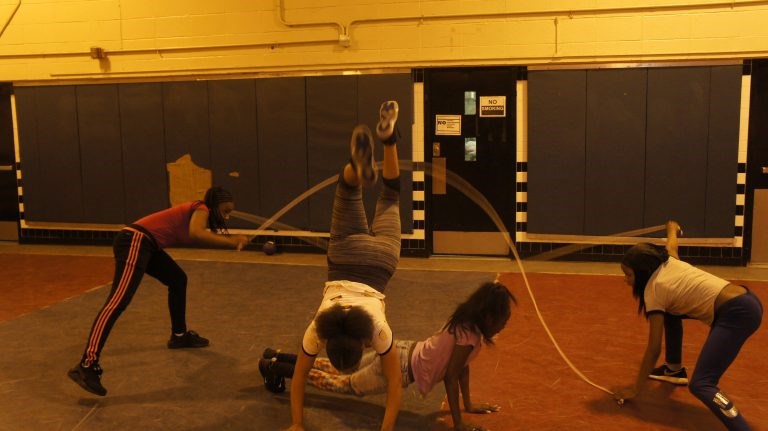
Their coach, Toni Veal, works two jobs, takes a night class at York College and shows up three evenings a week to train the kids. Because of bullying and stigma, there are just two boys on the team: "They say if you jump rope, you're gay." The sport, she stresses, keeps them off the crime-riddled streets of Brownsville, recently dubbed the "murder capital" of New York. "I'd rather you be here with me than outside doing God knows what with God knows who," Veal says.
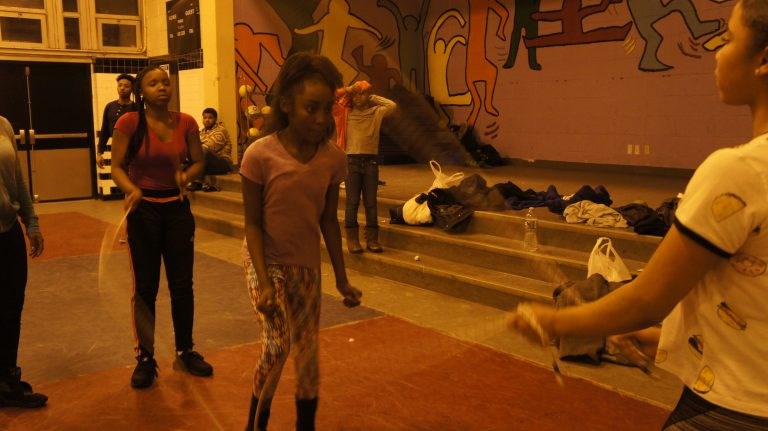
At twelve, Veal found solace in double dutch after her life went south.
An only child with a father who was "here today, gone tomorrow," Veal lost her mother to cancer at age seven. Her mother had assured her that the blood she'd been coughing up was "just Kool Aid." Fraught with grief, Veal vented her aggressions at school.
"My way of expressing myself was through fighting, getting into drama and doing a whole bunch of things I had no business doing," she recalls. "My grandma took custody of me and she raised me very well, but it just wasn't enough for me. I wanted my parents."
Sandy Fortune, Veal's predecessor, coached the Jazzy Jumpers until her death six years ago. It was Fortune who encouraged Veal to join the team over a decade ago. "It gave me something to strive for," Veal says.
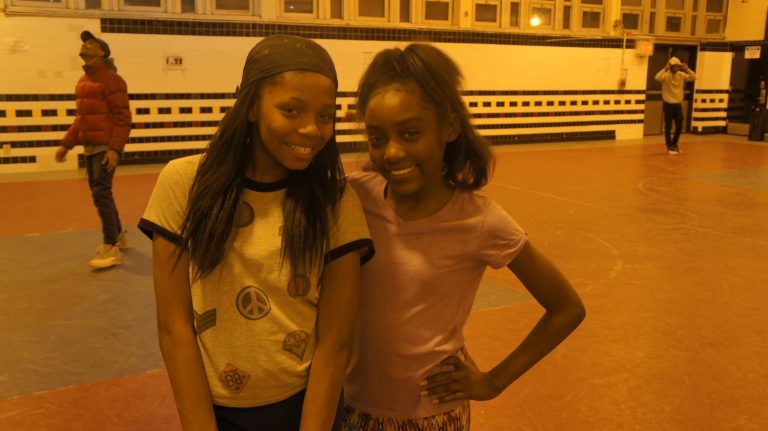
Double dutch involves jumping rope continuously for two minutes, with a higher score awarded the more steps jumped. "Every time your left foot hits the floor, it's considered one step," Veal explains. Tucking in the knees and elbows is crucial to conserve enough energy to jump over 250 times in 120 seconds. By contrast, the street version of the sport is done with stylized flourishes that hearken to hip-hop dance.
[perfectpullquote align="right" cite="" link="" color="" class="" size=""]"The league down there offered to pay the girls' registration fee and everything as long as we get there."[/perfectpullquote]
While Jazzy Jumpers tamps down expenses by practicing in a community center free of charge and using mass transit or carpools to travel to tournaments, this week's competition in New Hampshire was a spur-of-the-moment invitation. Budget-wise, the team was caught off guard. Uneeka Baisden, who jumped for Jazzy Jumpers when it was first founded in the 80's at PS 323 on Chester street, oversees the business side of things, including funding and outreach. Now, her 11-year-old daughter, Ahimsa, is a speed jumper on the team.
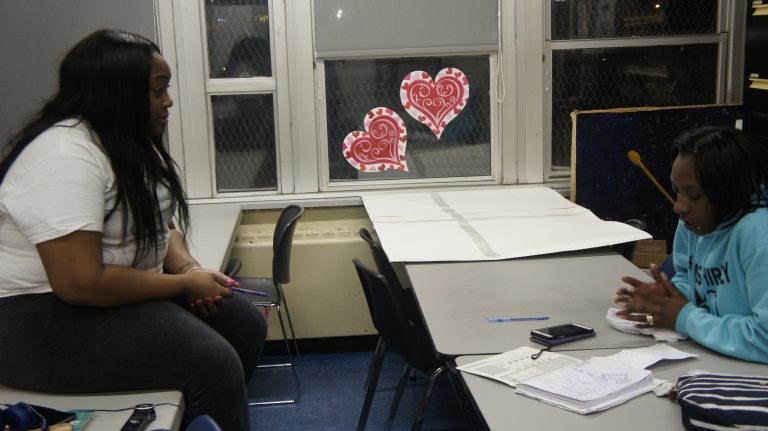
Jazzy Jumpers was scheduled to leave for New Hampshire in less than 12 hours, but Baisden was still waiting on a check which Brownsville assemblywoman Latrice Walker had pledged to cover transportation and hotels for the girls, two chaperones and two assistant coaches. Walker had promised the funds back in January: "The league down there offered to pay the girls' registration fee and everything as long as we get there," Baisden explained. "We just have to find funds for transportation and hotels."
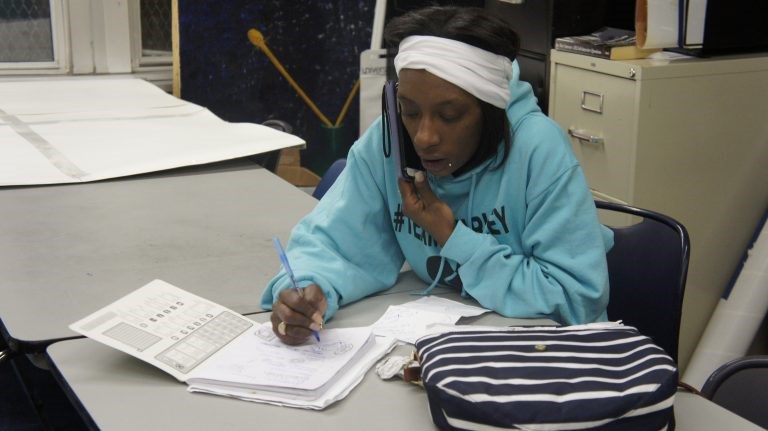
After a prolonged back-and-forth over the phone with Walkers' secretary, Baisden was in exasperated tears. She had charged $680 to her credit card to pay for the hotel rooms, and it was too late for a refund.
[perfectpullquote align="right" cite="" link="" color="" class="" size=""]"We work really well as a team and we just enjoy ourselves and have fun"[/perfectpullquote]
Asked if the trip might be canceled, Baisden and Veal were emphatic. "Oh no, we're going. They're going," Baisden said. "The thing about it is, see, we are family. If we can't get the money, we do what we gotta do. We take our cars on the road."
Eugene Fortune, who took over the team after his wife, Sandy, died and is affectionately known as "Papa Doc," was prepared to drive the children down to New Hampshire instead. By Friday morning, however, the check had cleared and a bus was available to take the girls to their tournament.
On Saturday, at the USA Jump Rope regional tournament in New Hampshire, the girls took 1st, 2nd and 4th place. This coming April, the Jazzy Jumpers will perform with assemblywoman Latrice Walker - herself a former Jazzy Jumper - at Universoul Circus, which focuses on circus performers of color.
"We work really well as a team and we just enjoy ourselves and have fun," said Inazia Harris, a fifth-grader who won the state championships two years in a row. "And as long as we're having fun, that's the main point."



